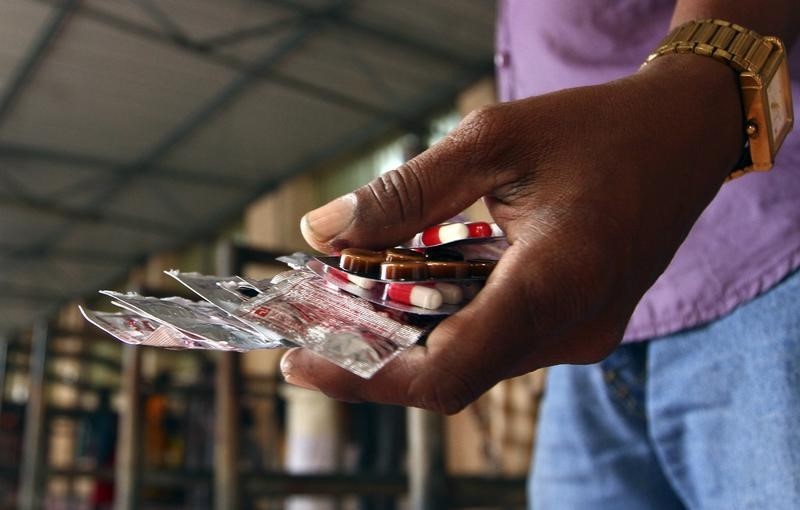MUMBAI (Reuters) - India said on Wednesday it had put off for now the resumption of talks on a planned free trade accord with the European Union due to the bloc's refusal to lift a ban on the sale of around 700 pharmaceutical products.
European regulators recommended in January suspending marketing approval for 25 generic drugs on concerns over the quality of data from clinical trials by GVK Biosciences. The ban came into effect last month.
The Indian government has previously said it found no evidence of data manipulation and has been in talks with the European authorities for more than eight months to end the ban.
Announcing its decision to defer the planned resumption of talks this month on the 'India-EU Broadbased Investment and Trade Agreement, the government expressed disappointment over the EU ban on its products, adding that pharmaceuticals was a "flagship sector" for the country.
"It is pertinent to mention that most of these drugs have already been in the EU market for many years without any adverse pharmaco-vigilance report from any member state," it said in a statement.
EU Trade Commissioner Cecilia Malmstrom told reporters in Brussels this week the two sides would hold a "stocktaking meeting" probably in early September to assess whether there was sufficient "ambition" to restart the trade talks.
The privately-held GVK Biosciences, part of India's infrastructure builder GVK Group, conducts clinical research for domestic and foreign drugmakers.
The EU regulatory actions were taken after France's watchdog inspected a GVK Biosciences manufacturing plant in southern India last year and found manipulation of data from electrocardiograms for at least five years.
The French regulator said at the time that suspensions were taken out of precaution and there was no reason to suggest the drugs were ineffective or harmful.

GVK Biosciences is one of the largest Indian clinical research organisations to come under international scrutiny over quality issues. Several large Indian drugmakers have over the past two years faced U.S. and British sanctions over issues ranging from data fabrication to sanitation.